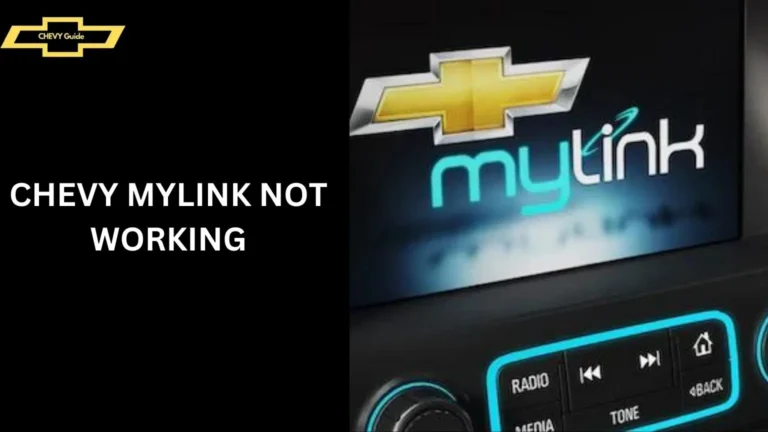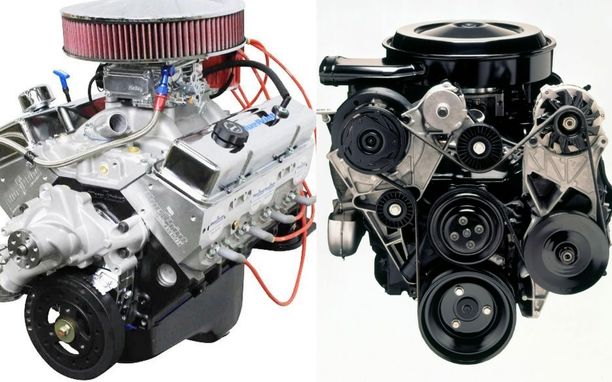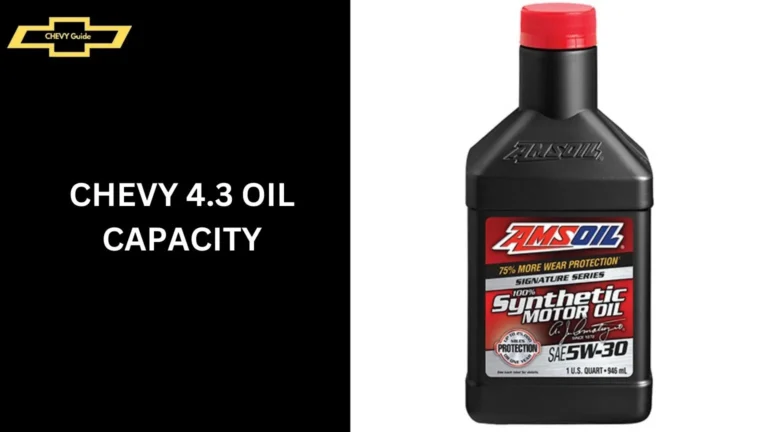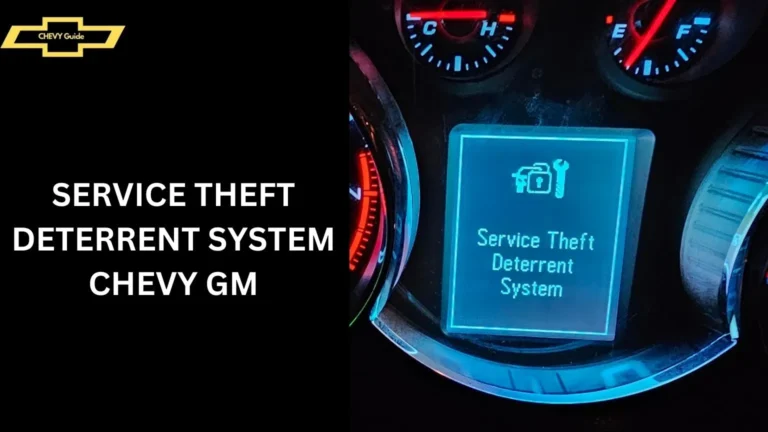Chevy 6.6 Gas Problems (Fixing) of 2024
Chevrolet’s 6.6-liter gas engines are renowned for their power and reliability in various Chevy truck models.
However, like any complex machinery, these engines can encounter specific issues that owners should be aware of.
Chevy 6.6 Gas Problems, In this article, we’ll delve into common problems associated with Chevy 6.6 gas engines, how to diagnose them, and effective solutions to keep your Chevy running smoothly.
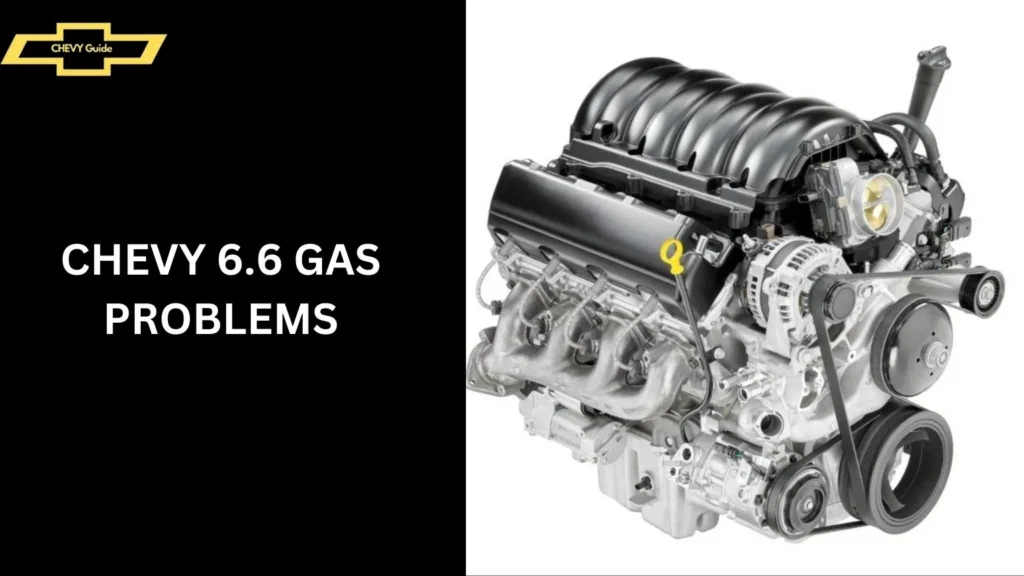
Chevy 6.6 Gas Problems
Chevy‘s 6.6 gas engines are favored for their robust performance and capability, ideal for heavy-duty applications and everyday driving.
Despite their reliability, certain issues can arise over time, affecting engine performance and reliability. Understanding these problems and their solutions is crucial for maintaining your Chevy’s optimal performance and longevity.
What is the Chevy 6.6 Gas Engine?
Chevy’s 6.6 gas engine, also known as the L8T V8 engine, is designed for heavy-duty trucks and offers substantial horsepower and torque. It’s a popular choice for drivers needing both power and efficiency in their vehicles.
Common Problems with Chevy 6.6 Gas Engines
Here are the Common Problems with Chevy 6.6 Gas Engines:
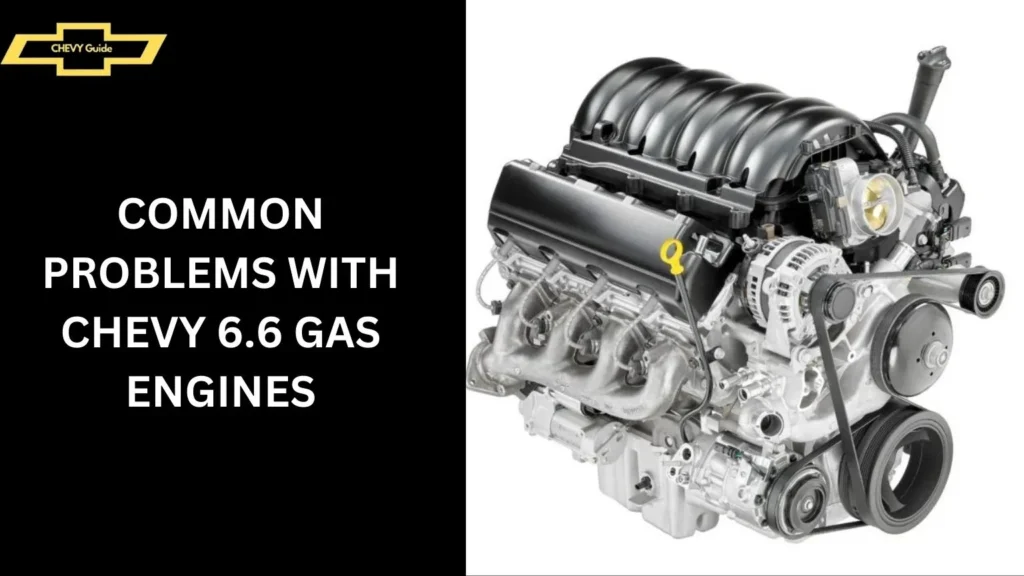
Fuel System Issues
The fuel system of the Chevy 6.6 gas engine can face several challenges that impact performance and efficiency.
Fuel Pump Failures
One of the common issues is fuel pump failures, which can lead to poor fuel delivery and engine stalling.
Fuel Injector Problems
Faulty fuel injectors can cause misfires, rough idling, and decreased fuel efficiency, requiring timely replacement.
Engine Performance Issues
Issues related to engine performance can affect overall drivability and power output.
Misfires and Rough Idling
Misfires and rough idling are often symptoms of ignition problems or fuel delivery issues that need immediate attention.
Low Power Output
Reduced power output can stem from various factors, including air intake restrictions or exhaust system inefficiencies.
Emission Control Problems
Ensuring compliance with emission standards is crucial, but Chevy 6.6 gas engines can encounter specific emission-related issues.
Catalytic Converter Failures
Catalytic converter failures can trigger check engine lights and emission test failures, necessitating replacement.
EGR Valve Malfunctions
Malfunctioning Exhaust Gas Recirculation (EGR) valves can lead to increased emissions and reduced engine efficiency.
Electrical System Issues
The electrical system plays a vital role in modern engine management and performance.
Sensor Failures
Sensor failures can disrupt engine timing, fuel delivery, and emission control systems, requiring diagnostic checks and replacements.
Battery Drain Problems
Excessive battery drain may indicate underlying electrical issues that need to be addressed to prevent starting problems.
Cooling System Concerns
Effective cooling is critical for engine longevity and performance, but Chevy 6.6 gas engines can face cooling system challenges.
Overheating Issues
Overheating can result from coolant leaks, thermostat failures, or radiator inefficiencies, necessitating thorough inspection and repairs.
Coolant Leaks
Coolant leaks can lead to overheating and engine damage if not promptly addressed, requiring hose or gasket replacements.
Diagnosing Chevy 6.6 Gas Engine Problems
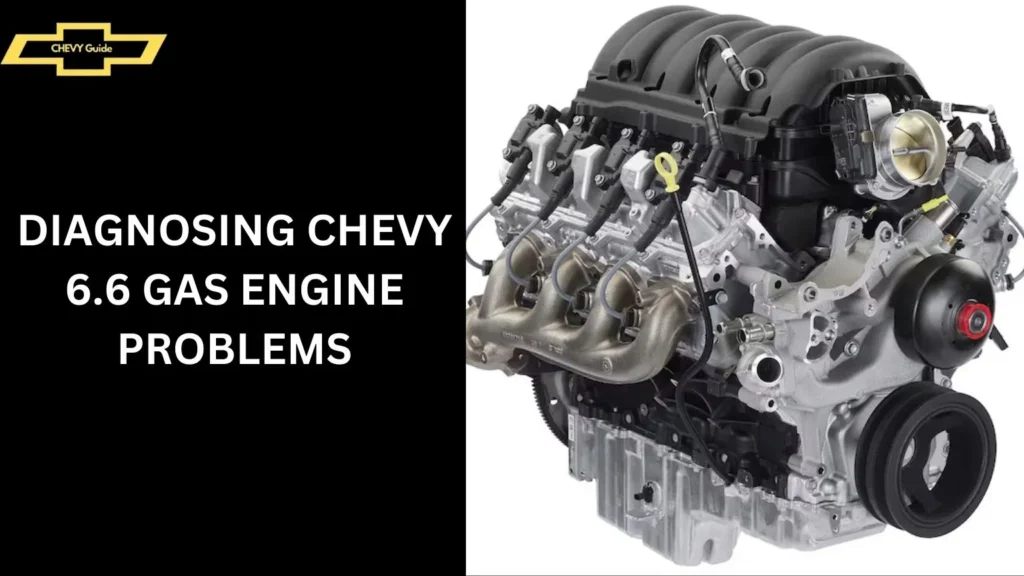
Early detection of engine issues can prevent costly repairs and ensure reliable performance.
Symptoms to Watch For
- Check Engine Light: Indicates potential issues with engine management systems.
- Reduced Power: Loss of engine power under acceleration.
- Abnormal Noise: Unusual engine noises may indicate mechanical problems.
- Poor Fuel Efficiency: Decreased mileage despite normal driving conditions.
Tools Needed for Diagnosis
Diagnostic tools such as OBD-II scanners, multimeters, and compression testers are essential for accurate troubleshooting.
Common Diagnostic Procedures
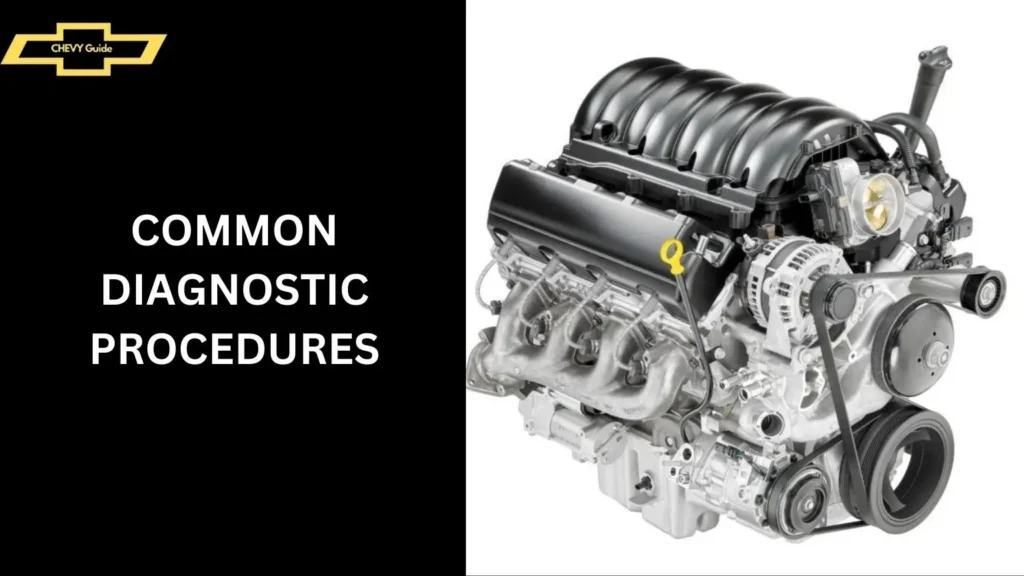
Performing thorough inspections, conducting computerized diagnostics, and interpreting error codes can pinpoint underlying issues effectively.
Fixing Common Issues
Addressing Chevy 6.6 gas engine problems promptly can restore performance and prevent further damage.
Fuel System Repairs
Replacing faulty fuel pumps or injectors and ensuring proper fuel pressure and delivery are critical for optimal engine performance.
Engine Performance Enhancements
Addressing ignition timing issues, replacing worn spark plugs, and ensuring air intake cleanliness can improve overall engine performance.
Emission Control System Fixes
Replacing failed catalytic converters, cleaning or replacing EGR valves, and ensuring proper exhaust system function is crucial for emission compliance.
Electrical System Solutions
Replacing faulty sensors, checking and cleaning electrical connections, and addressing parasitic battery drains can resolve electrical issues.
Cooling System Remedies
Repairing coolant leaks, replacing worn hoses or gaskets, and ensuring proper radiator function can prevent overheating and engine damage.
Preventive Maintenance Tips
Regular maintenance is key to preventing Chevy 6.6 gas engine problems and ensuring long-term reliability.
- Follow Maintenance Schedule: Adhere to manufacturer-recommended service intervals for oil changes, filter replacements, and tune-ups.
- Monitor Fluid Levels: Regularly check coolant, oil, and transmission fluid levels to ensure proper engine lubrication and cooling.
- Inspect Belts and Hoses: Replace worn belts and hoses to prevent breakdowns and coolant leaks.
- Use Quality Fuel: Use high-quality fuel to prevent fuel system deposits and maintain engine efficiency.
- Keep Air Filters Clean: Replace air filters regularly to ensure optimal air intake and combustion efficiency.
People also ask
What is the life expectancy of a 6.6 gas engine?
The life expectancy of a Chevy 6.6 gas engine can vary based on maintenance, driving conditions, and usage. With proper care and regular maintenance, these engines can often last well over 200,000 miles.
What MPG does the Chevy 6.6 gas get?
The Chevy 6.6 gas engine typically achieves around 12-15 miles per gallon (MPG) on average, depending on factors like driving conditions and vehicle configuration.
Is the Chevy 2500 gas reliable?
The Chevy 2500 with a gas engine, including the 6.6-liter option, is generally considered reliable, offering robust performance and durability suitable for heavy-duty applications. Regular maintenance is key to ensuring longevity and reliability.
What year did Chevy start using a 6.6 gas engine?
Chevy began using the 6.6-liter gas engine in their vehicles starting from the 2020 model year.
Conclusion
In Conclusion, Understanding common issues with Chevy 6.6 gas engines and knowing how to diagnose and address them is essential for maintaining vehicle performance and reliability. By staying proactive with maintenance and addressing issues promptly, owners can ensure their Chevy trucks continue to deliver optimal power and efficiency.

My name is James Henry, and I’m thrilled to share my passion for Chevy vehicles with you. With over a decade of hands-on experience in car repair and a deep love for everything Chevy, I’ve dedicated this site to helping fellow enthusiasts and owners navigate the world of Chevrolet.


